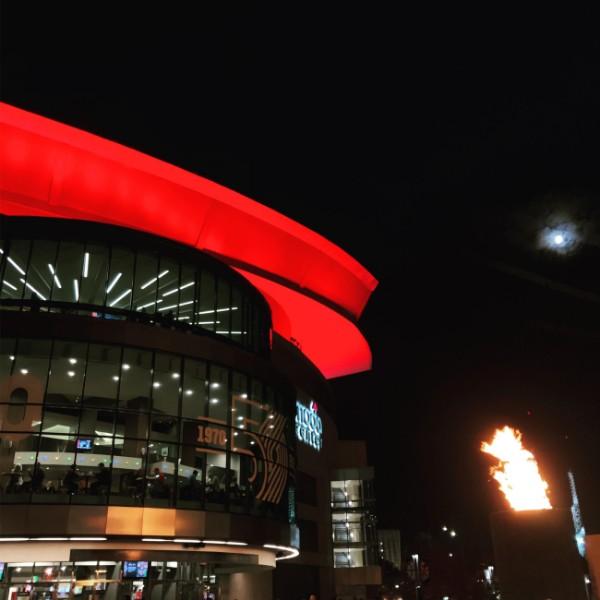
On Sep. 22, 2022, Oregon Senator Ron Wyden sent a letter to Adam Silver and Cathy Engelbert, commissioners of the National Basketball Association (NBA) and Women’s National Basketball Association (WNBA), respectively, suggesting that the WNBA should expand with a new team in Portland.
In response to Wyden’s letter, Engelbert indicated that Portland was a candidate for WNBA expansion, and that “Portland is a market that [the WNBA] holds in high regard and [is] actively considering.”
Wyden wrote in the letter that he’d witnessed the potential for women’s sports in Portland, which he called a “slam dunk,” while “having lunch at a new sports bar dedicated to just women’s sports.” The bar referenced is The Sports Bra, the first of its kind, which can be found in NE Portland.
The team, if created, would not be Portland’s first WNBA squad. The Portland Fire played from 2000 to 2002, achieving mediocre results. In their final season in 2002, the Fire finished the season at .500, with a 16-16 record and fifth place in their eight-team conference.
The Fire was disbanded in 2002 when then-owner Paul Allen, who also owned the NBA’s Portland Trail Blazers at the time, gave up on the franchise due to financial issues. The WNBA was founded in 1996, according to the WNBA website, and its youngest teams struggled to maintain a stable business.
Despite these revenue woes, the Fire had an avid and loyal fan base. Jenny Nguyen, the owner of The Sports Bra, who has played basketball since she was eight years old, grew up in Portland and watched the Fire frequently during their brief run. “Those crowds were incredible. The fan base was just legit,” she said. “So that was really amazing, as a young girl playing basketball, to see so many people, like, thousands of people, showing up to watch women’s pro ball, was really impactful for me at my age at the time.”
Franklin student Isa Hensley (12), a member of the school’s women’s basketball team, expressed her enthusiasm for the prospect of a new WNBA team in the city. “A [WNBA] team in [P]ortland would be super exciting!” she wrote in a message. “As a female athlete, and female in general, representation matters. It would be super inspiring to have women getting [paid] to excel at their sport in my own city.”
Even without a team in Portland, the WNBA has an avid following at The Sports Bra. The current nearest WNBA team to Portland is the Seattle Storm, a major draw for the bar, according to Nguyen. “I’ve had people drive down from Seattle to watch the Storm game here,” she said.
The WNBA consists of 12 teams at the moment. Portland is the 24th-largest metro area in the United States, making it a large market, if smaller than some other metro areas in the country that currently lack a WNBA franchise. However, it has a strong culture around women’s sports, especially through the Portland Thorns, a National Women’s Soccer League (NWSL) team that draws large crowds at The Sports Bra and elsewhere.
Oregon also has a strong history of women’s sports. The University of Portland has won multiple women’s soccer national championships, according to the university’s website, and both Oregon State University and the University of Oregon have become perennial national title contenders in women’s college basketball.
However, the new team’s business prospects could be held back by the lack of coverage of women’s sports. While one in three girls play sports at the youth level, according to Purdue University researcher Cheryl Cooky, women’s sports were given a dismal 5.4% of all airtime in 2019, an almost identical figure to the 5% found in 1989, and it would have totaled an even-lower 3.5% of airtime if the Women’s World Cup were removed from calculations. The lack of media publicity for professional women’s sports presents a barrier that could dissuade money-driven owners.
Hensley expressed concern that the team would have trouble due to disparities like these that plague women’s sports. “The [WNBA] team will most likely not get to play in the Moda [C]enter and will instead play on a college campus … like the [S]eattle [S]torm used to,” she worried. The team would likely play in the Memorial Coliseum, a smaller arena than the Moda Center, according to Willamette Week, although the Fire played in the Moda Center, which was then named the Rose Garden. Playing in the Memorial Coliseum instead of the Moda Center would limit the team’s attendance capacity by thousands of seats, according to data from the Rose Quarter website.
While women’s sports play in smaller venues and are not covered by many major TV channels, there is an “untapped market” for them, said Nguyen. She has gotten emails asking her to open new locations in “Louisville, Chicago, Minneapolis, Toronto, Barcelona, Sydney, Melbourne, Dallas, San Antonio, you know, every city you can think of,” she said. Women’s sports may receive little more than fringe media coverage from major outlets, but there is a willing audience for them.
Nguyen believes that a WNBA team could be hugely popular in Portland. “I would definitely have to open a second location,” she said of the possibility of a team in the city. “100% adding a second location or half the city will be p*ssed.”
Whether it became highly popular or not, a WNBA team in Portland would be guaranteed to have at least one big fan. “Oh my God, it would be a dream come true,” said Nguyen.

































